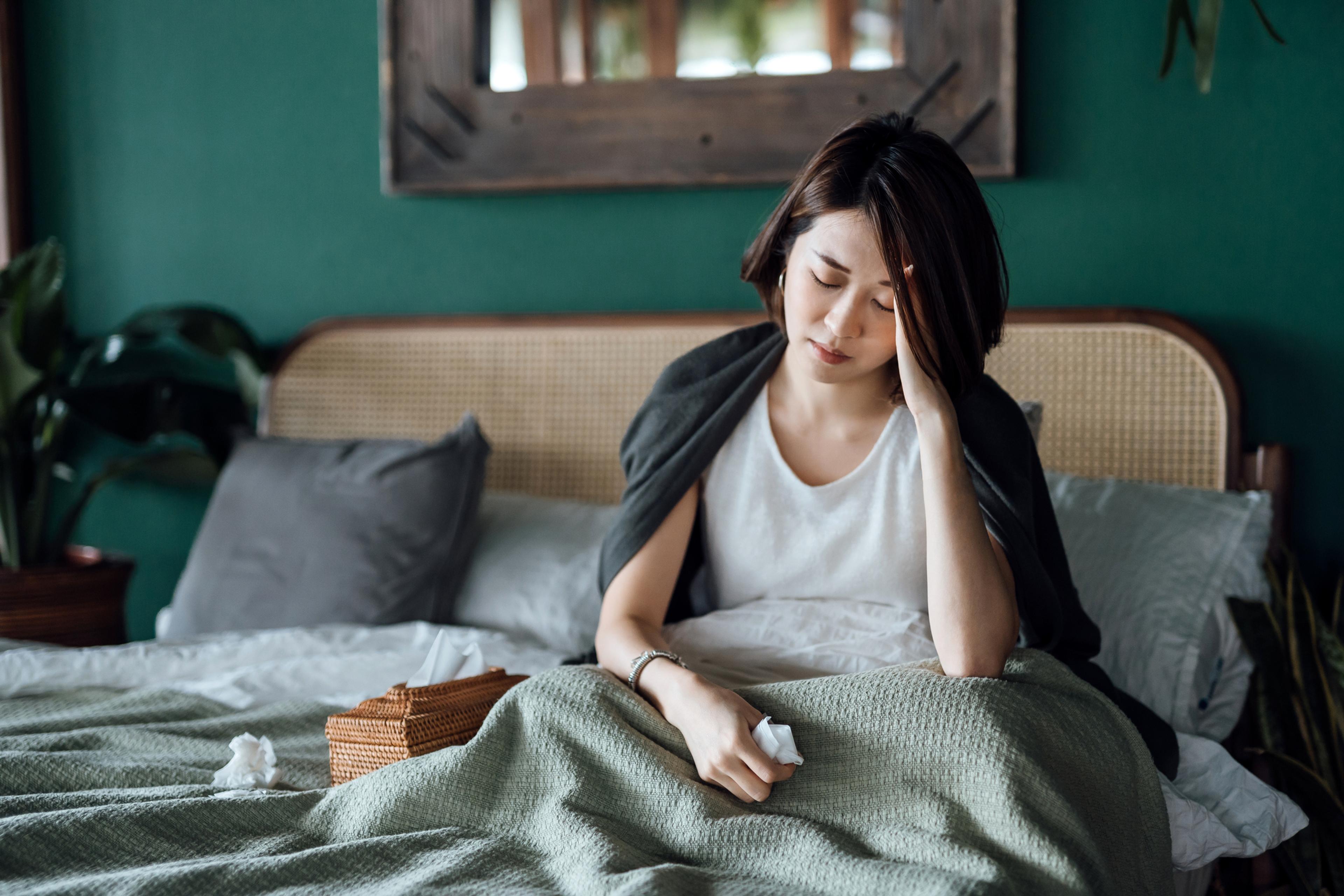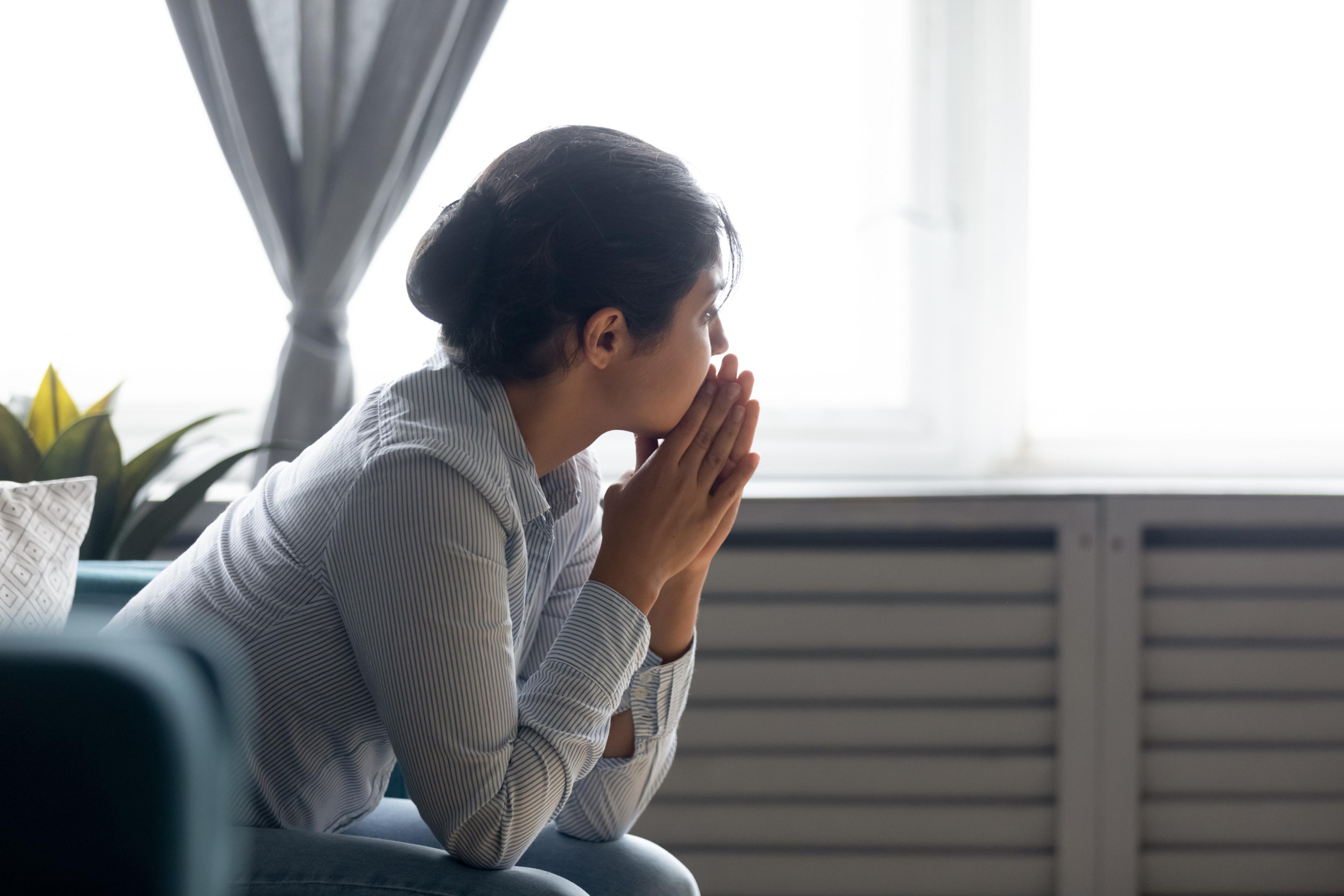Managing Mental Health and Allergies

Lindsay Knake
| 3 min read
Lindsay Knake is a brand journalist for Blue Cross B...

Allergies can make you feel tired, fatigued and irritable.
More than 50 million Americans experience allergy symptoms each year, according to the American College of Allergy, Asthma & Immunology. Did you know fatigue and brain fog resulting from allergies can make daily life difficult and may contribute to feelings of anxiety depression?
What do allergies do to your body?
With allergies, your immune system overreacts to a substance such as pollen or pet dander. Your immune system releases antibodies, which bind to the allergen and signal the release of histamines. Those histamines are a defense mechanism and can make you feel fatigued and drowsy, according to Penn Medicine.
Other symptoms of allergies include sneezing, hives, itchy eyes and congestion. Congestion can disturb your sleep and contribute to fatigue, brain fog and depressive feelings. In effect, allergies make you feel like you have an illness. If this lasts for weeks or months at a time, it can have a negative effect on your mental health.
Additionally, studies have found an association between allergies and depression.
Tips for managing your mental health during allergy season:
Remember what’s happening.
When you feel physically ill or depressed, your mind can start to feel the same. The amount of work it can take to deal with the symptoms of allergies can be draining, too. When you experience ongoing symptoms of anxiety or depression while experiencing allergy symptoms, it can be easy to forget what’s going on. Remember, you aren’t lazy; your body is reacting as though you have an illness. Give yourself compassion for what you are experiencing.
Talk to your physician about treatments and medication.
While over-the-counter antihistamines and nasal sprays can help significantly, that may not work for everyone. If you’re struggling with allergy symptoms and mental health effects, talk to your doctor. Your physician may refer you to an allergist, a physician who specializes in allergies, for testing and treatments. Prescription medications can replace or pair with over-the-counter medications to improve your health and reduce allergy symptoms.
It’s also important to discuss your mental health symptoms with your physician, a therapist or mental health care provider. Medication and therapies can help with symptoms of depression and anxiety.
Allergy-proof yourself and your home
Take care of yourself by reducing your exposure to allergens.
- Stay inside as much as you can when pollens are high. Pollen counts are higher in the morning.
- Change your clothing after being outside.
- Shower and wash your hair after coming inside.
- Keep your home clean to reduce allergens.
- Use HEPA (high-efficiency particulate air) filters for single rooms and disposable filters for whole-house HVAC systems to keep the air clear of allergens and particles.
- Keep windows closed if you have outdoor allergens
- Wash bedding regularly and keep pets off your bed and out of your bedroom if you are allergic to pet dander.
- Vacuum with a HEPA-filter to clean carpets and rugs.
Practice general healthy habits:
- Your body isn’t functioning at its best when you’re dealing with allergies, so make sure to rest and get quality sleep.
- Even if you don’t feel like it, exercise will help with fatigue and give you a mental boost. If you have pollen allergies, don’t exercise outside when pollen counts are high.
- Eat a nutritious, balanced diet and drink plenty of water.
- Use meditation and relaxation techniques.
- Seek support from your primary care physician, allergist, therapist, friends and family.
Image: Getty Images
Related:





